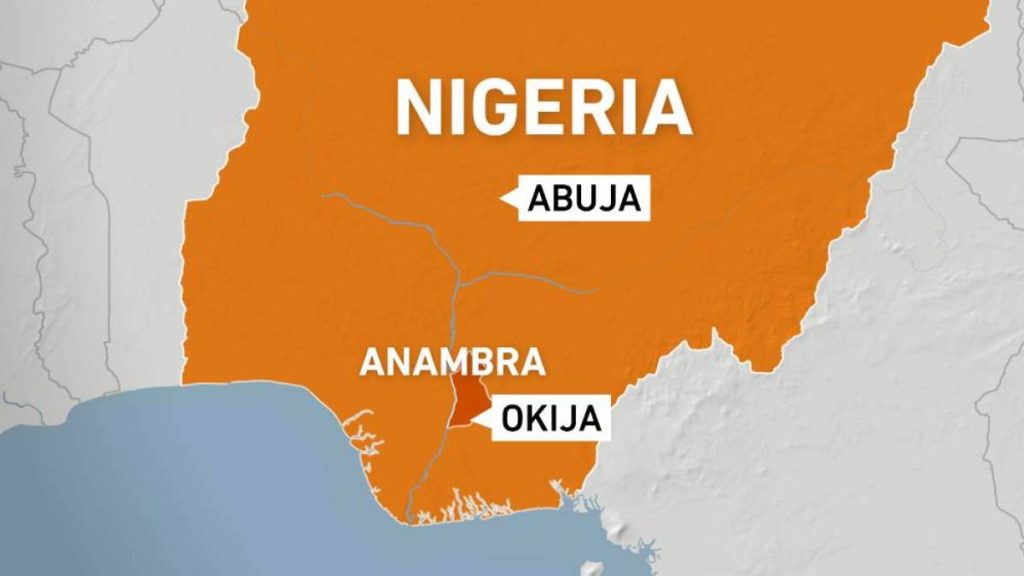The festive season in Nigeria was tragically marred by two separate incidents of deadly stampedes during charity distributions, claiming the lives of at least 13 people, including several children. The incidents, occurring on Saturday, underscore the dire economic conditions prevailing in the country, where surging inflation and rising cost of living have pushed many citizens into desperate poverty. These tragedies echo a similar incident just days earlier, adding to the growing concern over the safety and well-being of vulnerable populations struggling amidst economic hardship.
The first incident unfolded in the nation’s capital, Abuja, during a Christmas charity event organized by the Holy Trinity Catholic Church in the Maitama district. Early in the morning, as people gathered to receive gifts of food and clothing, a chaotic scramble ensued, resulting in a fatal stampede. At least ten lives were lost, including four children, while eight others sustained injuries of varying severity. The scene was one of utter chaos and despair as people, driven by desperation, surged forward, inadvertently trampling those in their path.
Simultaneously, a similar tragedy unfolded in the town of Okija, situated in Anambra State in southern Nigeria. A charity event organized by a philanthropist was overwhelmed by a sudden rush of people, even before the distribution had officially commenced. The ensuing crush claimed the lives of three individuals, with the possibility of more fatalities as police investigations continue. In both instances, the victims were predominantly women and children, highlighting the vulnerability of these groups in such situations. The desperate circumstances faced by many families drove them to seek assistance at these events, tragically leading to the loss of life.
The recurrence of such tragic incidents within a short span raises serious concerns about the underlying issues contributing to these disasters. Nigeria, Africa’s most populous nation, is grappling with an unprecedented cost-of-living crisis, fueled by soaring inflation and economic reforms that have removed subsidies on essential commodities like electricity and fuel. The devaluation of the national currency has further exacerbated the situation, eroding the purchasing power of ordinary citizens. These factors have created an environment of desperation and vulnerability, where even basic necessities like food have become increasingly unaffordable for many.
President Bola Tinubu responded to the tragedies by canceling all his official engagements in Lagos, expressing his condolences and offering prayers for the victims and their families. The President’s statement acknowledged the profound grief and loss felt by the nation, particularly during the festive season, a time typically associated with joy and celebration. The somber events serve as a stark reminder of the hardships faced by many Nigerians, even amidst the holiday season.
The string of fatal stampedes during charity events highlights the urgent need for better crowd control measures and a more comprehensive approach to addressing the root causes of the economic crisis. The desperation driving people to risk their lives for basic necessities is a clear indication of the depth of the problem. Amnesty International’s statement, emphasizing the increasing unaffordability of even staple foods like rice, underscores the severity of the situation. The organization called for thorough and transparent investigations into the incidents, urging authorities to take proactive measures to prevent similar tragedies in the future.
Beyond immediate investigations, addressing the underlying economic issues is crucial to preventing such incidents from recurring. Sustainable solutions are needed to alleviate the economic burdens faced by vulnerable populations. This includes implementing policies that address inflation, create job opportunities, and provide social safety nets to protect those most in need. The incidents serve as a wake-up call, highlighting the urgent need for comprehensive and sustained efforts to improve the living conditions of ordinary Nigerians and ensure their safety and well-being. The tragic loss of life during what should have been a season of giving and hope underscores the urgent need for action and reform.

